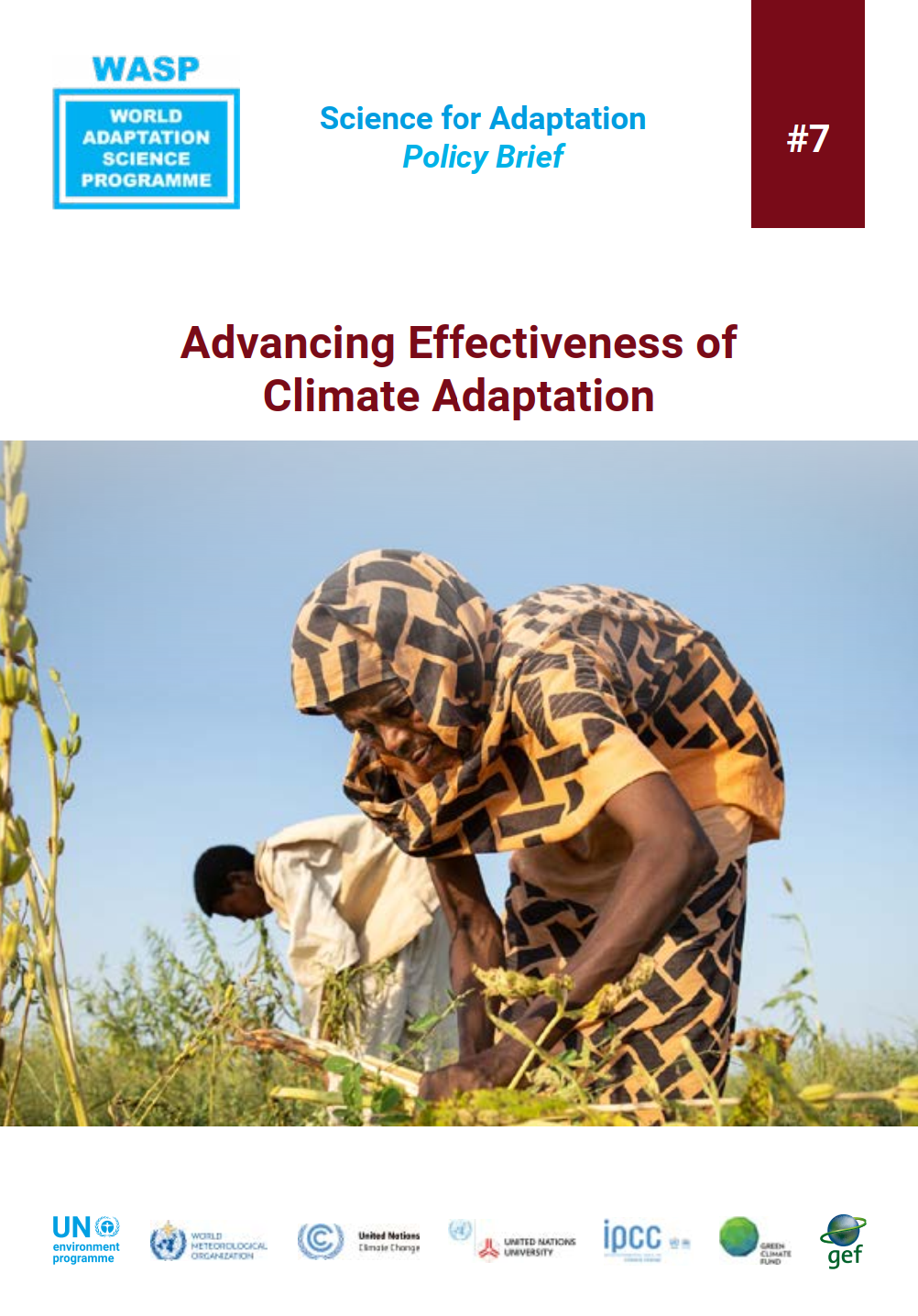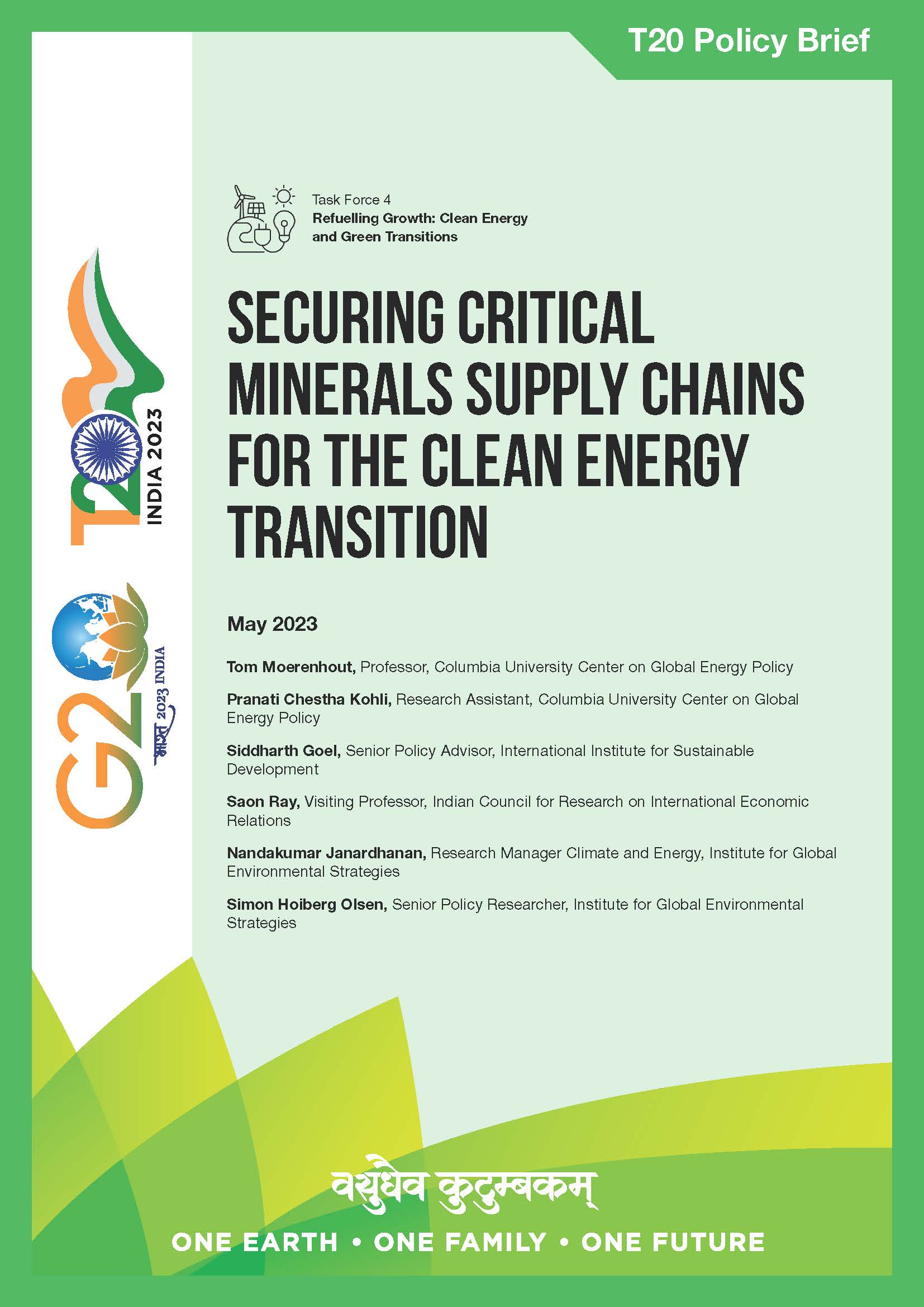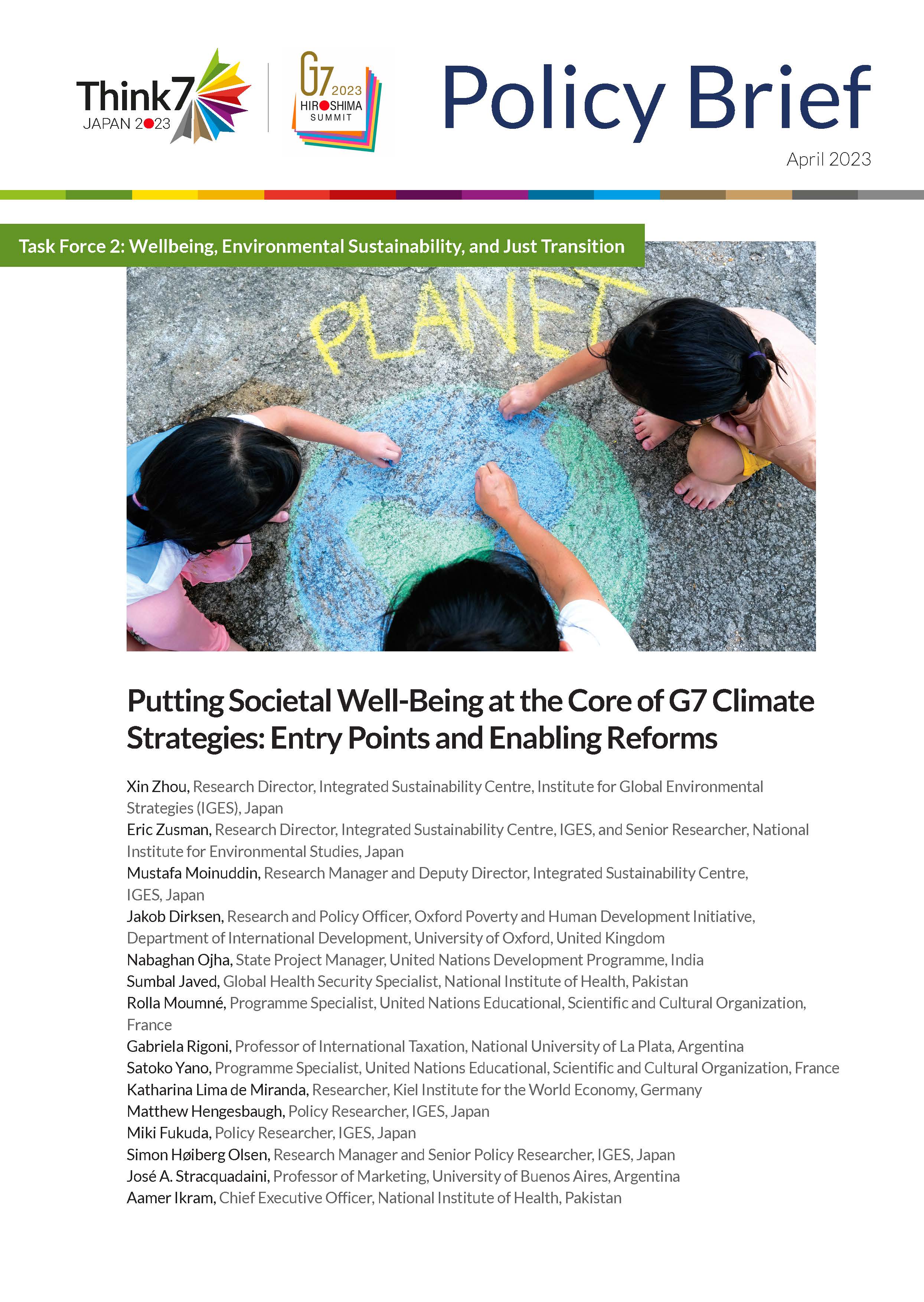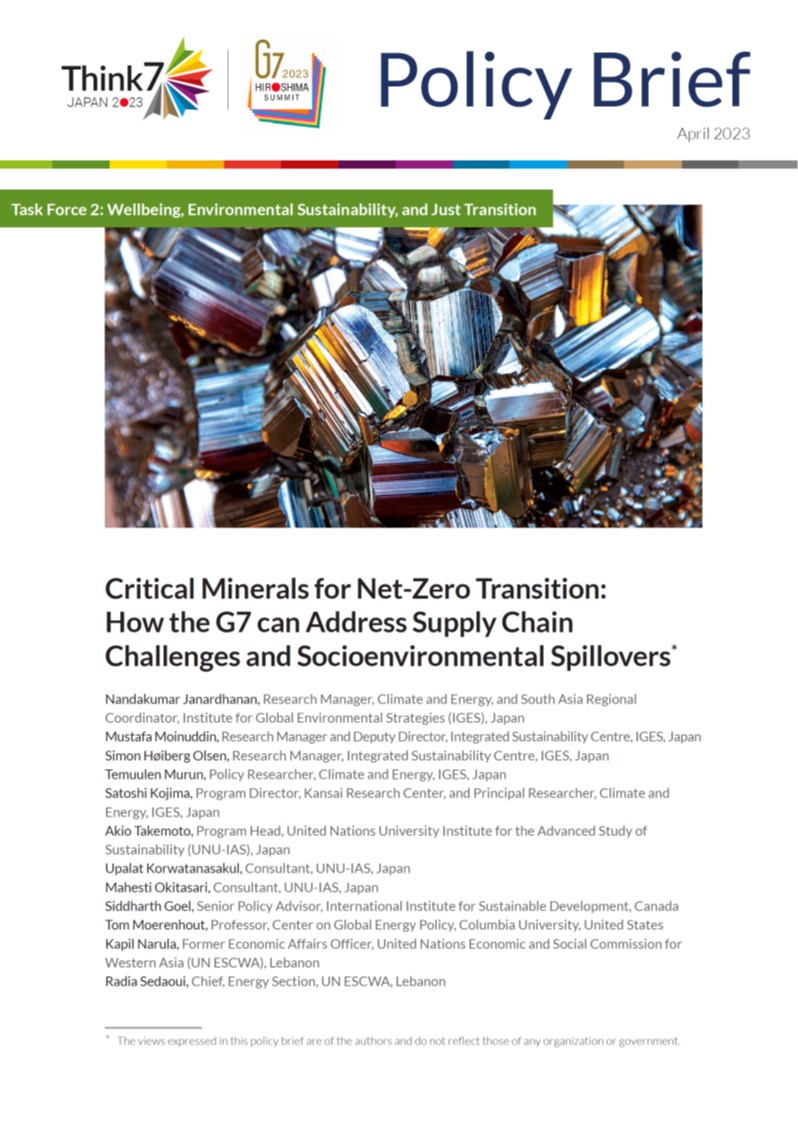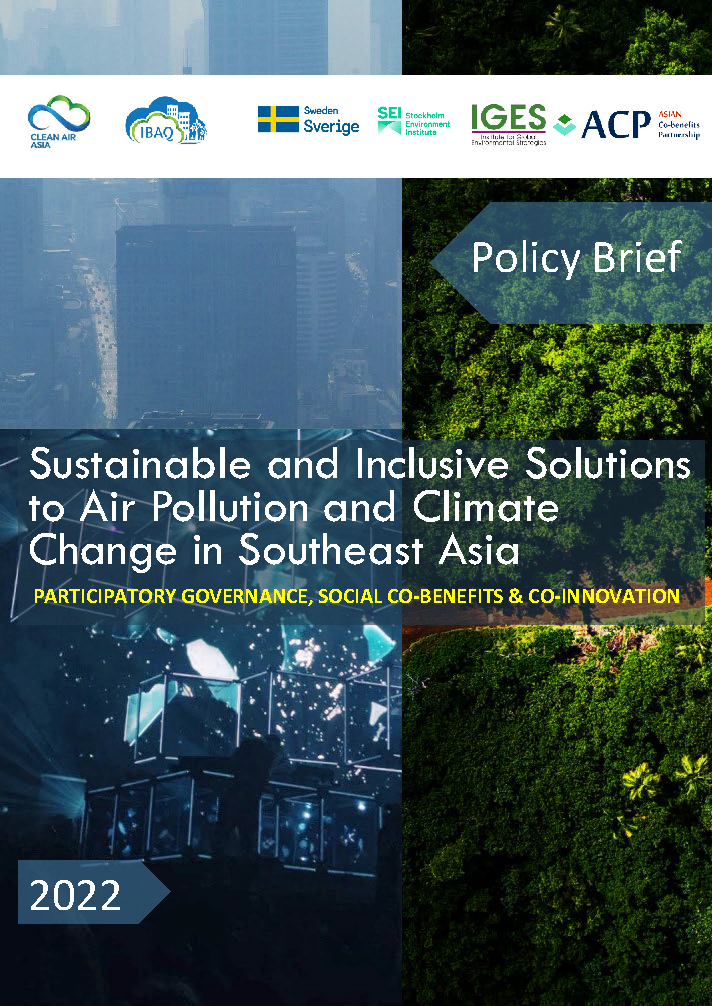Evaluating the effectiveness of adaptation policies and actions is key to understanding whether they have reduced climate risks and achieved other intended outcomes. The goals are to ensure that adaptation is adequate to address climate risks, do not foster negative unintended consequences over space and time, and inform adaptation financing. The...
- Clear all
- Type: (-) Policy Brief
- Topic: (-) Climate Change
- Topic: (-) Sustainable Technology
Results 1 - 10 of 18 (Sorted by date)
The International Energy Agency estimates that to hit net-zero globally by 2050, six times more critical minerals will be required in 2040 than today. The rapid increase in demand for critical minerals is likely to increase price volatility. This could aggravate energy security concerns, and thereby delay the necessary clean energy transition...
Keywords:
T7/G7 Task Force 2 Wellbeing, Environmental Sustainability, and Just Transition Policy Brief
Integrating the Sustainable Development Goals (SDGs) into climate actions is essential for a healthy planet and people. Yet, national climate policies and international climate support programs often fail to explicitly recognize the interconnections between climate concerns and other priorities covered under the SDGs. This failure can leave key...
T7 Policy brief: Task Force on Wellbeing, Environmental Sustainability, and Just Transition As the world’s most developed economies, the Group of Seven (G7) countries play a crucial role in leading the transition to net-zero, which necessitates the use of critical minerals (CMs) in various clean energy applications. However, the growing demand for...
Keywords:
This policy brief aims to answer a critical question: how can policymakers, civil society, and researchers address air pollution, climate change, and socioeconomic equity with inclusive solutions ? The brief argues that much of the answer will involve reframing how policymakers, civil society groups, and researchers perceive the interrelationship...
ASEAN Centre for Energy Policy Brief
1. The ASEAN State of Climate Change Report (ASCCR) presented ASEAN’s mitigation goal: i) Achieve net-zero greenhouse gas (GHG) emissions as early as possible in the latter half of the 21st century; and ii) Cap peak GHG emissions as soon as possible after 2030 to ensure the net-zero GHG emission goal is met on schedule. 2. However, the updated...
Key Messages A reason COVID-19 has had such far-reaching impacts is it stems from multiple interconnected risks. The difficulties that policymakers face in managing related risks not only deepen vulnerabilities to COVID-19 but other planetary crises. Explicitly recognizing and acting to achieve the co-benefits of integrated air pollution, climate...
T-20 Climate Change and Environment
Scientific evidence suggests that cumulative GHG emissions have already caused climate change, which tolled victims all over the world but quite often charged disproportionally high costs to poor segment of the world, and substantial mitigation actions are needed to avoid irreversible catastrophic change in ecosystems that underpin very human...
銀行が気候変動に伴うリスクを適切に評価し対処しない場合、巨額の損失に直面する危険性を指摘し、銀行セクターに対して、持続可能な財務経営に向けた、リスク管理及び財務会計における気候関連リスクの統合強化を提言しています。
This policy brief suggests that carbon pricing can accelerate the diffusion of low-carbon technology in China, based on the results of empirical studies conducted by Kansai Research Centre of IGES focusing on China’s most energy intensive industries.

